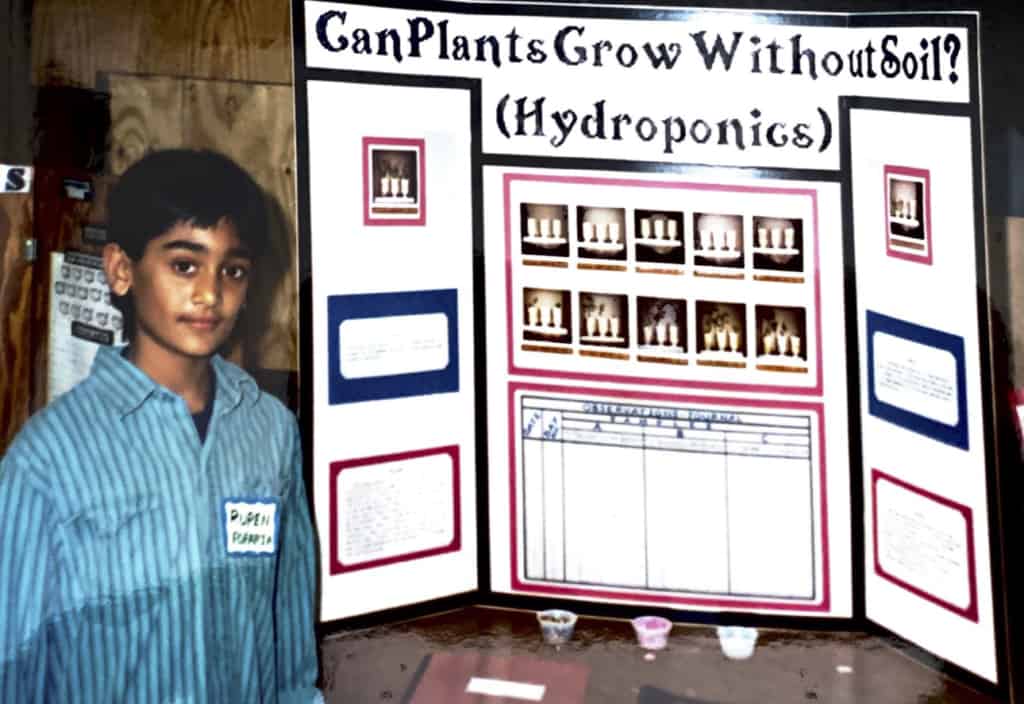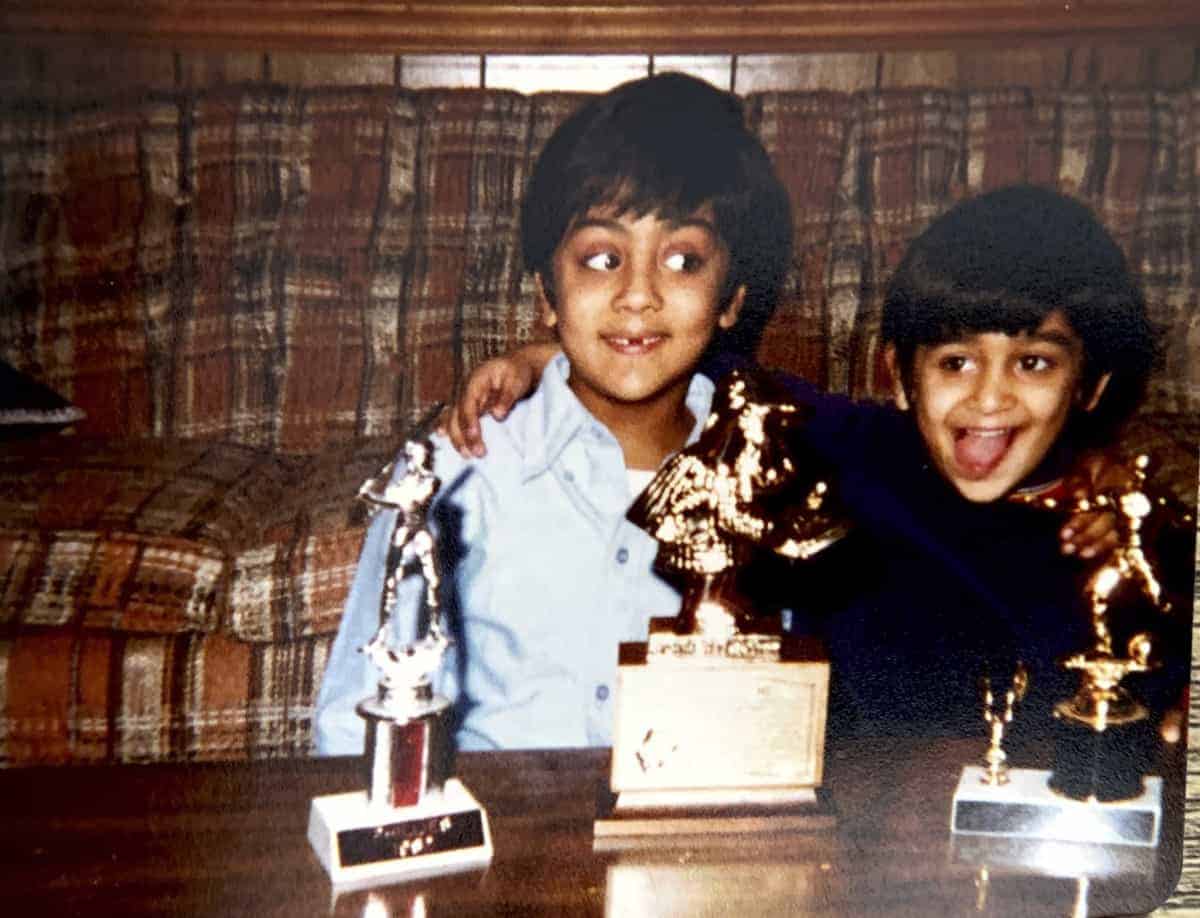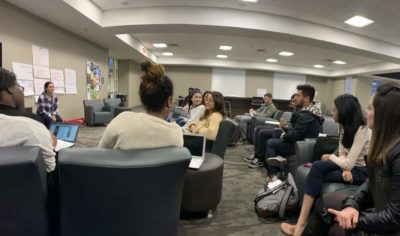I learn differently than you. Well, statistically, I suppose I learn differently than 80% of you.
Today, I know that 1 in 5 students in America’s schools have learning differences like me — that our brains are wired uniquely, and we receive and process information differently than the majority. Today, I know that these differences make us special, that they are gifts that influence our lives in so many wonderful ways. In me, they fostered the curiosity, reflection, and creativity that make me a storyteller.
But that’s today. When I was a kid, I was sure I was just stupid — and maybe a little bit broken.
I was 8 years old when I first remember feeling the shame and defeat of school. I struggled with what everyone thought were careless errors. I had difficulty following the teacher’s verbal lessons and directions. Even when I thought I understood a concept, my written homework grades were low.
My parents and teachers asked me to pay closer attention and try harder. I tried. They asked me to double-check my homework. I triple-checked it. The trouble was, I would misread the same question three times and erroneously conclude I’d gotten the answer right each time. Or, if it had been a verbal lesson, I often totally misunderstood the concept in the first place.
I was perplexed, though, because my teachers kept telling my parents I was smart and I just needed to apply myself more. When we did projects or had presentations in class, I excelled. It was clear, once we had spent enough time on a concept, that I was capable. But I simply couldn’t master it by hearing the lesson, I continued to get tripped up on word problems, and I couldn’t hold my attention in one place for very long.
As my homework grades got worse, so did my self-esteem. When you’re a kid, your job is to go to school. Your job performance is constantly graded. And my grades were coming back inadequate. That’s how I felt: inadequate.
I sorely wanted to perform well at school, but it felt like I couldn’t try hard enough. And as the teachers kept reminding me to focus more and try harder, I kept thinking I didn’t know how to focus or try.
I felt defective.
As I resigned myself to bad grades, I simply stopped turning them in. One day when my mom cleaned under our living room couch, she found a week’s worth of homework completed and balled up underneath. Why bother turning it in, I thought, if it was all going to be wrong?


I also felt like I couldn’t say anything about any of this. I was afraid to ask the teacher to repeat something or tell her that I didn’t understand. She had already told me to try harder, and I didn’t want her to think I wasn’t trying hard enough.
As fifth grade came to a close at Washington Elementary, they tested us to determine if we should be in Gifted & Talented at Ligon Middle School, and if so, whether we should be in the two-teacher or four-teacher track.
My scores came back shockingly low. It surprised my teachers, who believed I was capable but unfocused. So they gave me a second chance, and the scores came back low again. But this time, I was missing concepts I had gotten right the first time and displaying comprehension in some concepts I had missed before.
That’s when the guidance counselor, Ms. Schaefer, stepped in. She brought me in on a weekend, and she watched me take the test. Then she gave me a break — I remember my parents taking me to McDonald’s for fries. When we returned, she verbally delivered the test. I remember feeling embarrassed and panicked. When I took the test on my own and my attention drifted, I could just bubble in an answer and move on. Now, I had to admit that I wasn’t paying attention to her. I was watching the family of ducks outside.
Ms. Schaefer learned enough to determine I should be in two-teacher GT at Ligon, and that’s the end of what I was told. I learned later, though, that she sat my parents down to talk about dyslexia, auditory processing disorder, and attention deficit disorder (this was the year before ADD and Hyperactivity were treated as the same disorder called ADHD). She told my parents I should be tested to see if I had learning disabilities.
My parents were not receptive. Born and raised in India, they moved here in the late 1960s because my father wanted my brother and I to have more opportunities. He was first in his class in every grade through college, and he got here via scholarship to a master’s program at N.C. State — at a time when getting such a visa was next to impossible for someone from a small village like his.
Education was not just a priority in our home, it was the priority. My parents didn’t understand what a learning disability was, but they didn’t like the sound of it. My father, God bless him, figured he could fix me at home. We didn’t talk about any of the information Ms. Schaefer gave them, and I didn’t get tested (not until college).
In middle school, I never felt like I earned my way into GT classes. I thought Ms. Schaefer must have liked me and took pity on me. I continued to struggle with school work. The shame and fear around school was so distressing that I abandoned trying too hard. If I tried and I failed, I was a failure. If I didn’t try in the first place, I couldn’t fail. That was the thought process anyway.
By the time I got to Enloe High School, I had traded the confusion over why I was stupid and different for a brash ownership over not caring. I did enough to get by, and, worried that my grades wouldn’t get me into a decent college, I applied myself more toward the end.
My parents were adamant that I would score well on the SATs, so they must have proctored more than 25 practice SATs at home. I got so bored with them, I started making games out of it. For some questions, I would sing them to myself. With others, I pretended I was on a game show answering before Alex Trebek and a studio audience. I didn’t know it at the time, but I had stumbled upon some common ADHD techniques to overcome my distraction.
My GPA was unimpressive — a 3.4 sounded good in my day, but mine was not out of a possible 4.0. Because of AP courses and weighted averages, the denominator was much higher and my GPA placed me somewhere in the lower half of my graduating class. But my SAT was a solid 1360 out of 1600 thanks to some gamification that testing day. I truly believe the University of Maryland didn’t get the memo that my GPA was not out of a possible 4.0, because they took my 3.4 and 1360 performance and not only admitted me, but put me in their scholars program. And thank God. When they saw my actual work product, it stunned them enough that they had me undergo testing. They discovered my ADP and ADHD and taught me tools to succeed. For me, these range from gamification to technology to faith.
It’s hard to express the relief that came with understanding much of my difficulties were borne from my brain’s wiring, not whether I was “smart” or “stupid.” It gave me the confidence to chase my dreams — and I did. I became a sports writer for some of the largest newspapers in the country before moving to ESPN.com and applying to law school. I used the techniques I picked up from psychologists and books to excel in law school. I graduated with honors, edited a law journal, and served as president of our moot court honor society.
Today, I know my brain isn’t defective. It’s unique. I learn differently, but I can learn. Most of us with learning differences are of above-average intelligence — we just don’t perform in a cookie-cutter, standardized way. Our learning may look different to you, but our differences — if accepted, fostered, and addressed — are gifts that open up pathways to unconventional thought, creativity, and success.
Sometimes I wish I could visit with my 8-year-old self and tell him he isn’t stupid. I wish I could give him the tools I have now and help him accept himself. Maybe then he wouldn’t have internalized all the feelings of being lazy and dumb.
But I believe we each go through the things we do for a reason. Today, I have the opportunity to call attention to the 1 in 5 like me who are in schools right now wondering if they’re inadequate. Spoiler alert: They are not.
At EducationNC, we are committed to covering learning differences and sharing stories about students, educators, and programs that are working to change our perceptions around LD. This week, we are going to take a deeper look at what learning differences are, share stories of students who are succeeding with learning differences, talk about teachers who are nurturing different learners and preparing them for success in life, and speak to parents who have overcome the fear and shame of their child’s learning disabilities to become advocates and champions.
I hope you’ll visit with us from time to time to learn more about the LD community, and I hope you’ll engage with me to share your thoughts and your stories.
I’m proud to be part of the 1 in 5. It has presented challenges, but in working to meet them, it has forced me to find my God-given gifts — the strengths that feel good when I use them and the ones that present me the best avenues for helping others in my own unique, somewhat different way.
This is Part 1 of our series on Learning Differences. Throughout the week, we will explore the terminology behind learning differences, what learning differences look like in the lives of students, and more.



